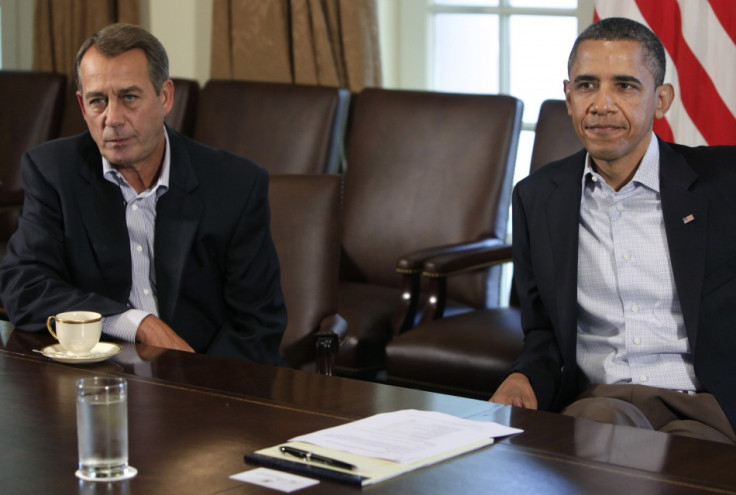U.S. Debt Ceiling: Tensions Between Democrats and Republicans Hampering Progress

Just a week before the Aug. 2 deadline for Congress to act, hope for a compromise between Republican and Democratic proposals, and with Washington looking stuck in an impasse, Washington the mood in the U.S. is becoming more and more tensed as the risks of a downgrade to the top-notch US credit rating are looming everyday a little bit closer.
Analysts are growing increasingly concerned as discussions looked to be delayed for several days after Republicans pushed back a House of Representatives vote on their plan originally expected for Wednesday.
Staffers were forced to rewrite the bill after an analysis by non-partisan budget experts found it inadequate as they said it would not deliver the level of spending cuts it promised.
The vote is now set to take place on Thursday at the earliest, with many suggesting it implies Congress will be forced to work out negotiations until the deadline limit of Aug. 2, after which the Treasury Department has said it will run out of borrowing room.
Frustrations and fears are now striking in the U.S and abroad after analysts warned that if the U.S defaults, consequences will be felt by both the U.S and other global economies.
Credit rating agencies have threatened to downgrade the United States' gold-plated AAA rating if the Congress and the White House do not extend the debt ceiling and take steps to bring long-term deficits under control.
New reports imply that in attempt to calm the crisis and arrive to a compromise, Democrats have accepted to drop their demand for tax increases for the wealthy.
However, the main contentious point is still unresolved as questions surrounding how many trillions of dollars to cut in exchange for a critical increase in the government's $14.3 trillion debt limit, remain unanswered.
On the other hand, an official congressional analysis pointed out that the plan devised by Republican House of Representatives Speaker John Boehner, who launched a stark attack on Obama, following the President's address to the nation on Monday, would produce smaller savings than originally promised - less than $1 trillion in spending cuts over the coming decade rather than the $1.2 trillion the speaker announced on Monday.
As the situation seem to have reached a standstill, polls indicate that Americans now start to think that the Aug. 2 deadline might pass without a solution.
Tensions between the Republicans and President Obama are clear to for everyone to see, and show no sign of dying down.
Defending the President's position and proving who, is for now the leader, the White House announced that Obama would veto the Republican bill, even if it got through the House and the Senate, controlled by Democrats.
The Boehner bill would require congressional action to raise the debt ceiling this summer, and again before the 2012 elections, which Obama strongly opposes.
Raising the debt ceiling just before the presidential elections would only contribute to increase political pressure during the campaign, argue Obama's camp, proving that the president is determined to win the elections and lead the campaigns.
Instead Obama supports a separate bill, pushed by Majority Leader Harry Reid in the Democratic-controlled Senate that would raise the debt ceiling enough to tide the government over through next year, and just beyond the elections.
Clearly, tensions between Republicans and Democrats only contribute to the deepening of the impasse the U.S. faces. One important fact to keep in mind is that the potential crisis is first and foremost n economic one not a political one, and in situations where a number of countries would also be affected clearly political rivalry should second and not first.
© Copyright IBTimes 2024. All rights reserved.






